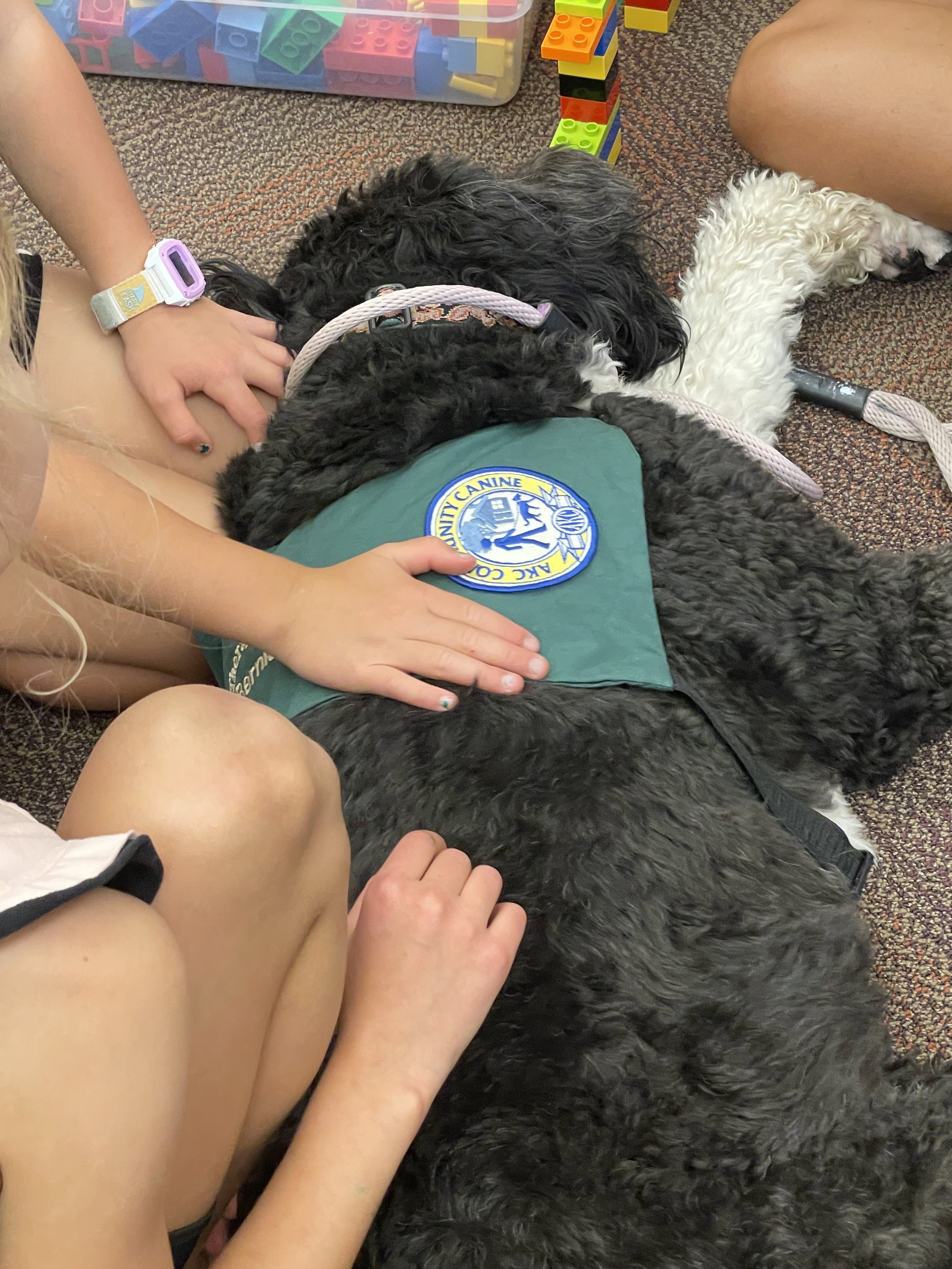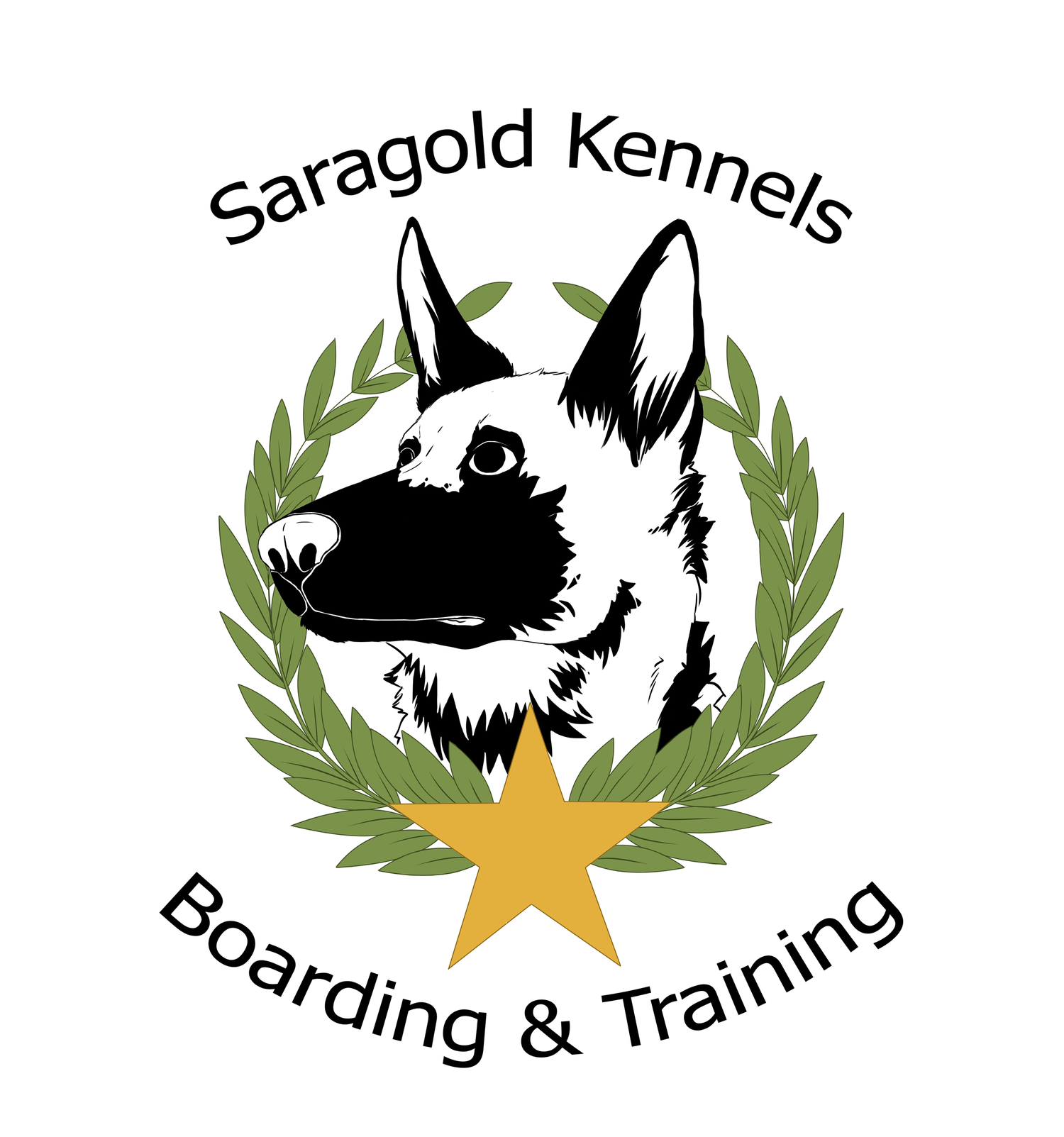
Give your pet their most fulfilling life through
Therapy Work.
Therapy dogs brighten lives by volunteering with their owners to offer comfort, companionship, and encouragement in our communities.
Therapy dogs and their handlers work together to bring comfort, confidence, and connection to people in need—whether supporting a child learning to read or brightening the day of a senior in assisted living.
To ensure safety and professionalism, therapy dogs must truly enjoy people, be well-mannered, and remain calm in new environments, around children and seniors, and near medical equipment.
Our Therapy Dog Teams are required to pass the AKC Canine Good Citizen, Community Canine, and Urban Canine tests and be at least one year old before beginning certification with our local group. Certification is completed after three supervised visits with a senior member of our Pets Helping People Therapy Team. Teams then receive their official certificate, therapy vest, embroidered volunteer shirt logo, member guide, and team insurance coverage.
To support you on your journey, we offer training options, volunteer opportunities, and community visit requests using the links below.
Therapy Dog FAQs
-
Therapy dogs work as volunteers to serve their community. Therapy dogs receive special invitations to visit college campuses, library reading programs, sites of natural disasters, hospitals, assisted living facilities and many more places to provide comfort, companionship, and a calming presence to individuals in need.
-
Because of the diverse environments a therapy dog may be asked to visit, it’s important that they are obedient and well-mannered. Therapy dogs are often asked to work with or around medical equipment, hospital beds, elderly or disabled individuals, or people with unique needs. This requires dogs to be comfortable and calm in new environments and to genuinely enjoy meeting new people.
To be a member of Magic Valley’s Pets Helping People Therapy Team, your dog must be at least one year of age, and have successfully passed their Canine Good Citizen (CGC), Advanced or Community Canine Good Citizen (CGCA), and their Urban Canine Good Citizen (CGCU) tests. We offer a special Therapy Dog group class that focuses on teaching dogs how to safely approach and interact with medical equipment and to navigate stairs, elevators and more.
-
NO. Therapy dogs are only able to visit certain businesses at pre-arranged times, when their presence has been requested by those in charge of these businesses. Outside of these pre-scheduled visits, the therapy dog functions as a pet, and does not have any rights to visit public locations that a pet would not be welcome.
-
Therapy dogs may visit schools, libraries, hospitals, assisted living facilities, natural disaster sites, and more, provided they have been invited there in advance. Therapy teams have no special rights beyond this.
-
No. Emotional support animals and therapy dogs are both pets, but therapy dogs are extensively trained to offer therapeutic intervention to groups of people with the aid of their owner. ESA’s provide affection and support for one individual (usually their owner) and do not require extensive training. Neither ESA’s nor Therapy Dog’s have public access rights, as they are both pets.
-
Therapy dogs and psychiatric service dogs (or PSD’s) are both dogs trained to behave in a variety of different environments. Aside from this, their roles are very different. Therapy dogs are trained by their owner or an organization to volunteer and serve in their community, when invited. They do not have rights to accompany their owners in public.
PSDs are owned and handled by individuals with a mental illness that meet the ADA’s definition of a disability. These dogs are trained to accompany their owners in public and to provide tasks that improve their owner’s independence and quality of life. Tasks and public access training take years to teach reliably, and PSD’s reflect this in their behavior and comportment in public. Click here to learn more about service dogs.


